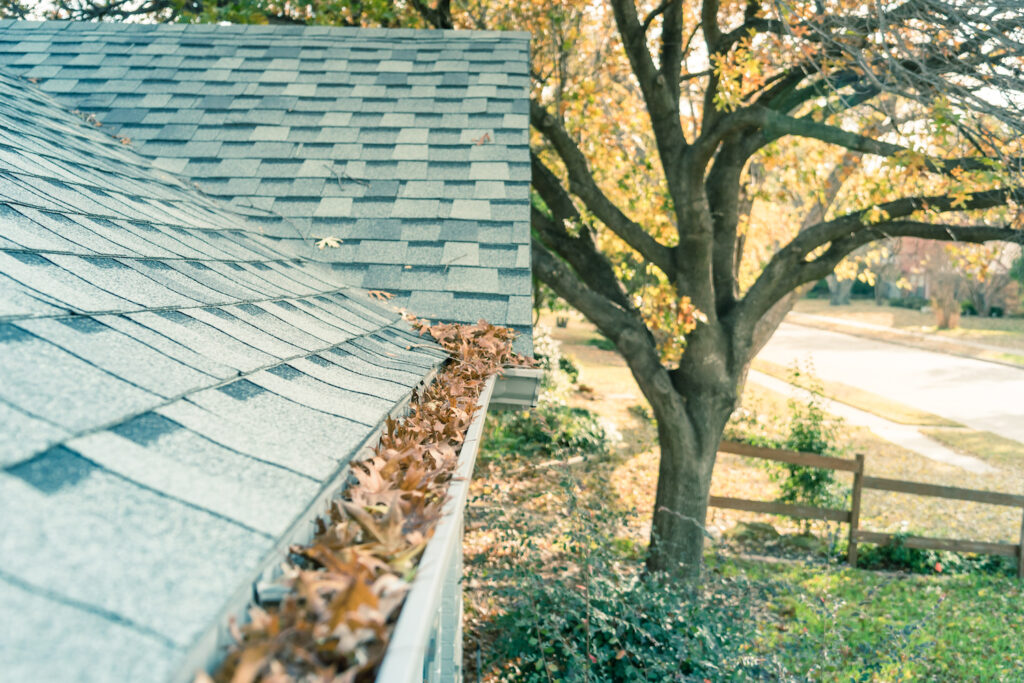As the leaves begin to change colors and the air turns crisp, fall and winter bring their own set of challenges for Georgia homeowners. While our state may not experience the extreme winter weather seen in other parts of the country, it’s essential to be proactive and prepare your home for the colder months. Here are some key steps to help you avoid common issues like mold, fire, and water damage during fall and winter.
1. Inspect Your Roof and Gutters
Your roof is your first line of defense against the elements, and ensuring it’s in good condition is crucial. Inspect your roof for loose or damaged shingles and address any issues promptly. Clean out your gutters to prevent water from backing up and causing damage to your roof or foundation. This step is particularly important in Georgia, where winter rains can be heavy.
2. Seal Gaps and Cracks
Gaps and cracks in your home’s exterior can let in cold air and moisture. Seal gaps around windows, doors, and your home’s foundation to keep your home warm and dry. This not only helps with energy efficiency but also prevents mold growth due to moisture intrusion.
3. Clean and Inspect Your Fireplace and Chimney
If you have a fireplace, have it professionally cleaned and inspected before the heating season begins. Creosote buildup in the chimney can lead to chimney fires. Proper maintenance ensures your fireplace is safe to use and prevents fire-related damage.
4. Check Your Heating System
Fall is the ideal time to schedule a professional inspection of your heating system. This ensures that your furnace or heating unit is in good working condition and safe to use. Change the air filter regularly throughout the season for improved efficiency and air quality.
5. Protect Your Pipes
Freezing temperatures, although not as severe in Georgia as in northern states, can still pose a risk to your pipes. Insulate exposed pipes and disconnect hoses from outdoor faucets to prevent frozen and burst pipes. A small investment in insulation can save you from water damage repairs down the road.
6. Maintain Proper Ventilation
Proper ventilation is key to preventing mold growth, especially in areas prone to high humidity like Georgia. Ensure that your bathrooms and kitchen have exhaust fans that vent outside. Use a dehumidifier if needed to maintain indoor humidity levels between 30-50%.
7. Trim Trees and Remove Dead Branches
Fall and winter storms can bring down branches, causing damage to your home or property. Trim overhanging branches and remove dead ones to prevent accidents and protect your home from falling debris.
8. Clean and Inspect Your Sump Pump
If you have a basement or crawl space, ensure that your sump pump is in good working order. Fall and winter rains can lead to groundwater infiltration, and a functioning sump pump is your best defense against flooding.
9. Prepare an Emergency Kit
Lastly, have an emergency kit ready for power outages or severe weather events. Include essentials like flashlights, batteries, non-perishable food, bottled water, blankets, and a first-aid kit. Be sure to have a plan in place for your family’s safety.
By taking these proactive steps, you can safeguard your Georgia home against mold, fire, and water damage during the fall and winter months. Remember that preventative maintenance is often more cost-effective than dealing with the aftermath of a disaster. But if the worst does happen, we are here to clean up the mess, repair the damage and remove lingering odors and other issues so you can feel at home again.

